For more details about an impact, contact information for NMSU ACES faculty and staff is available at the online directory.
For general questions regarding impacts in this database, please contact Claire Montoya at ccortner@nmsu.edu.
Environmental Stewardship
Rural and urban human activities affect land, water, and air. Through teaching, research, and Extension programs, the College of ACES is committed to further our understanding, using science-based knowledge, of human impacts on the environment, and to support environmentally-sound agricultural and natural resource practices.
Displaying 8 impacts with tag Environmental Stewardship.
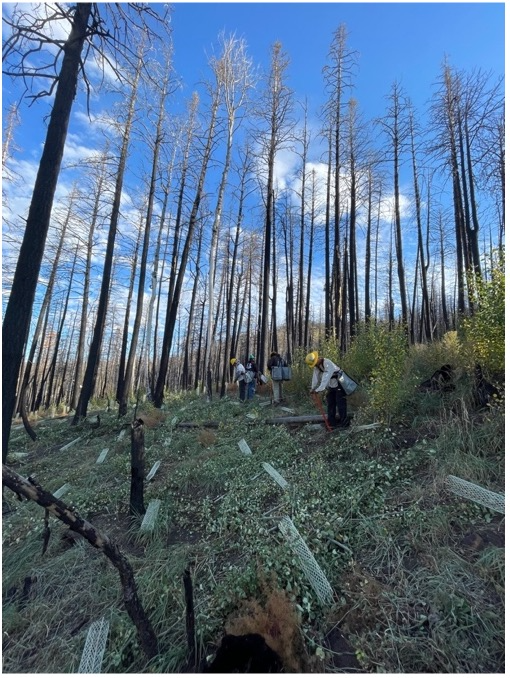
The JTH Forestry Research Center, in collaboration with the University of New Mexico, is researching nucleation planting to improve forest resilience in the southwestern U.S. This innovative approach mimics natural regeneration by planting small tree clusters, aiming to reduce fire risk and enhance drought resistance. Key research focuses include using seedling survival models to guide planting locations, testing a range of planting densities, and evaluating the impact of competing vegetation. In 2024, over 5,000 seedlings were planted in the Hermit’s Peak/Calf Canyon wildfire-impacted area, with active contributions from tribal communities. This long-term study seeks to optimize reforestation practices, leveraging model-based site selection and fostering collaboration to promote sustainable and climate-resilient ecosystems.
More...
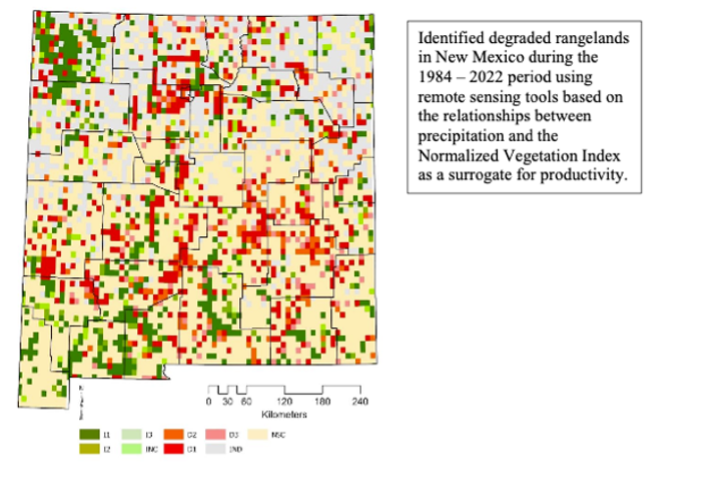
Assessment of Arid Land Sustainability Through Drought and Wildfire Management Drought and wildfire are major natural hazards that affect New Mexico’s ecosystems sustainability due to climate change. Two NOAA-funded projects aim to identify vulnerable regions and communities across New Mexico, document how affected communities use science-based tools to adapt to these natural hazard and identify current gaps to enhance their use to support the sustainability of arid land ecosystems.
More...
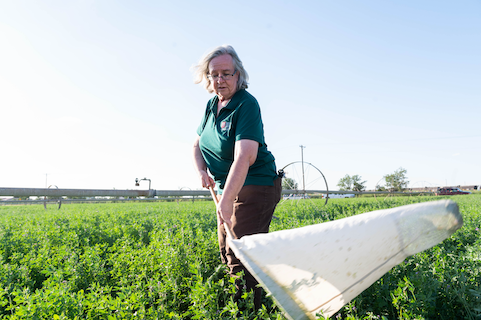
Biological Control has the potential to control many insect pests but is frequently undervalued. Control of insect eggs alone is often over 80% when populations of predators are not disrupted by frequent insecticide applications. The ASC farm has maintained good control of alfalfa weevil with biological control for 20 years. Replicating this type of control in just alfalfa and pecan will save growers over $6.5 million per year in reduced losses and control costs.
More...

Healthy soils provide the foundation for sustainable agriculture. Research at multiple locations in eastern New Mexico and Colorado to study soil health responses and associated ecosystem functions revealed multiple benefits of cover cropping and compost addition in dryland and limited-irrigation cropping systems.
More...
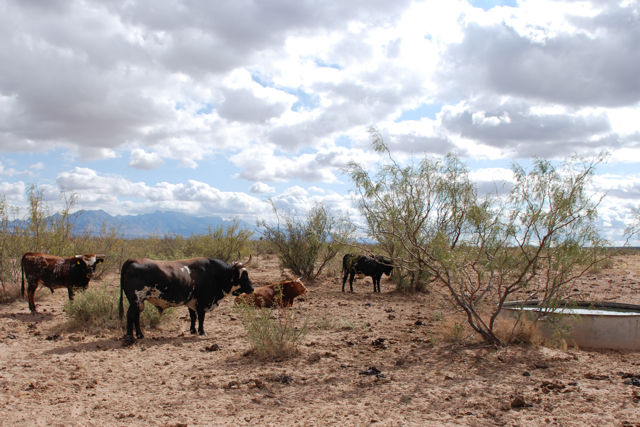
An NMSU researcher led an effort to understand how beef genetics impact the profitability of beef production in arid environments. Significant challenges for raising beef cattle exist in the arid and semi-arid regions of the United States. Limited forage availability and small profit margins are among the greatest concerns in Western U.S. ranching operations. One potential option for ranchers in these regions is using alternative cattle genetics, such as Raramuri Criollo (RC), a Mexican heritage biotype of cattle brought to the Americas by Spanish Conquistadors.
More...
(No image)
An NMSU researcher has received $400K from a $1 million USDA grant to develop the future workforce. Aquaculture is the fastest-growing sector of food production in the US and safe, nutritious, domestically-produced seafood is a national priority.
More...
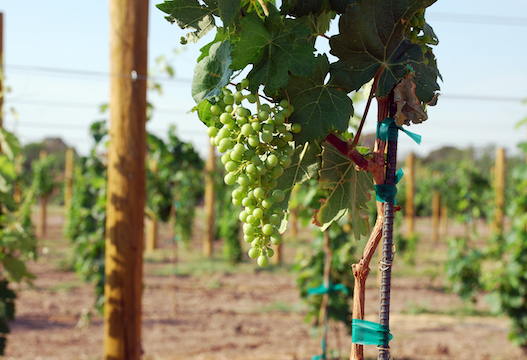
Weeds within vineyards may harbor insect pests, compete with grape vines for water and nutrients, and interfere with grape harvest. Traditional methods of weed control include plastic mulch and herbicides to prevent weed growth. While effective, plastic mulch is expensive and requires disposal after a few years, and herbicide has potential negative environmental impacts and its use is undesirable to wine consumers.
More...
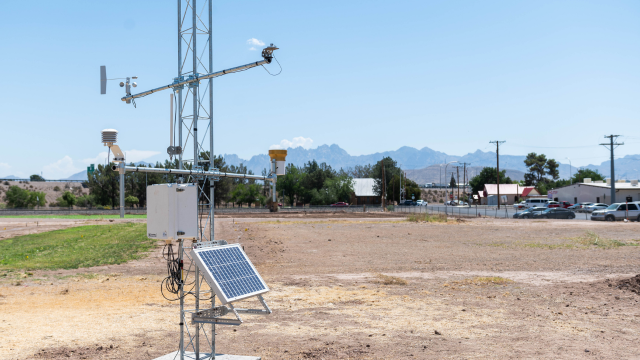
The weather station in Mora provided critical information on the low dew point temperatures, telling them about the extremely dry air and likelihood of extreme wildfire behavior in the Mora Valley.
More...